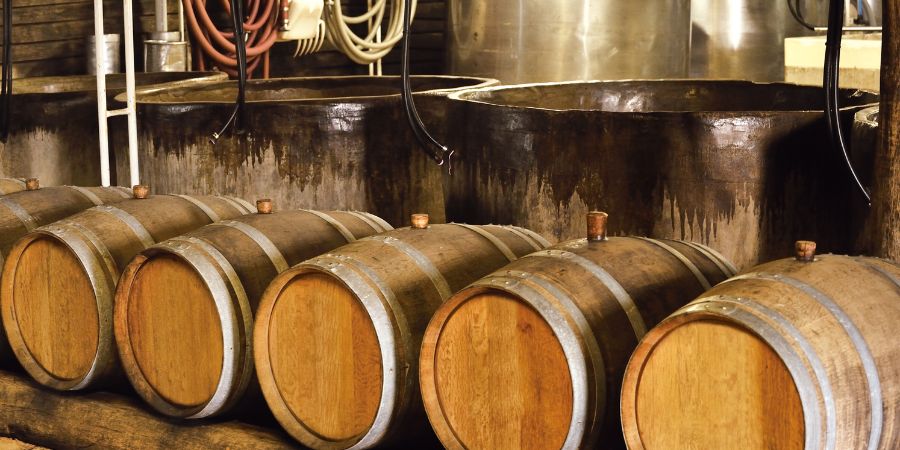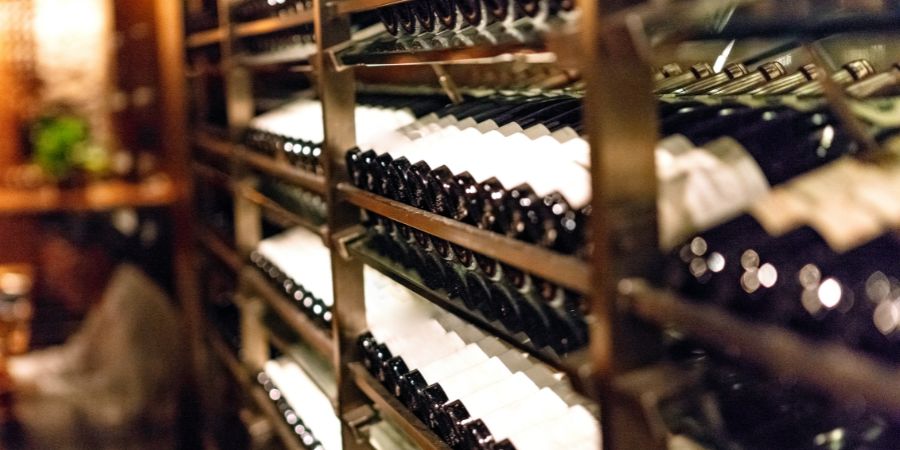Excess inventory is a fact of life in the wine business. The world can change dramatically in the year or two between planning production and going to market with a wine. As winery ourselves, we had to figure out how to sell excess inventory without damaging our long-term prospects for success.
Recently, we have worked with several of the ten largest wine companies in the US to help them with strategies for quietly and discreetly selling excess inventory. Despite all their sales resources, they know that this effort requires specific channels and unique strategies that their in-house teams do not have experience with. If this is true for the largest wineries, it is even more applicable to smaller wineries with fewer resources.
The following principles for a winery guide us:
- Select a broker or agent whose interests are aligned with the winery. Most wineries don’t have the experience and expertise to strategically sell excess inventory, which, by definition, requires skills and channels outside of the normal course of business. There are many brokers touting their services, but is their compensation aligned with the winery’s interests? Any broker that is not transparent about their compensation is likely looking to buy low and sell high at the winery’s expense.
- Demand transparency, provide trust. A winery needs to know where and how their wine will be sold; distributors, retailers, and customers see almost everything in today’s world. Anybody selling your wine must provide transparency about where your wine be sold and at what price. The complement of this transparency is trust: the winery must also provide trust and assurances that it won’t circumvent its agents.
- Communicate your priorities. Do you need to maximize cash recovery from your inventory? Or do you want to minimize potential damage to your brand image? Each sales channel or potential customer has its advantages and disadvantages. A good agent needs to know what is most important to you in order to craft a specific plan that meets your needs.
- Understand your timeline. Are you trying to solve an immediate cash crunch in the next 60 days? Or do you have 12 months to get back on track with your ideal release schedule for the next vintage? Your timeline will dictate the proper order of operations. If you have more time, your agent can take the time to prioritize customers that are better suited to your needs, but may take more time to schedule your wines into their programs.

A good agent or broker should be asking you the following questions:
- What does success look like for the winery? See points 3 (priorities) and 4 (timeline) above.
- What initiatives have you tried with your own customers? If you have a DTC program, a thoughtful offer to your customers will provide the best returns. An agency like Chatterbox can unlock the full potential of your customer base.
- What markets/states/countries are most sensitive? Each winery has a unique customer base and distributor network. A good agent should be trying to steer clear of potential pitfalls that will unnecessarily harm your brand.
- Are you open to creative channels (eg, private labels, “opaque” overseas markets, etc.)? This is often means less revenue for all parties involved, but it shows the agent cares about helping you protect the image and strength of your brand.
Just as a winery carefully hires employees and appoints distributors, you must do your due diligence in selecting an agent that can help you strategically convert your excess inventory into cash that can drive your business forward. Third Leaf Trading has successfully served as an agent for wineries, distributors, and retailers all over the United States for more than a decade, and we are prepared to offer our insights and assistance as the wine industry faces the headwinds of declining consumer spending and mounting excess inventory.
There are strategies you can use to offload excess inventory without damaging your future levels of success. Want to learn more? Let Protea Financial help get you there!
Frequently Asked Questions
What should wineries do with excess wine inventory?
Excess winery inventory can be managed through various strategies depending on your goals. Selling it discreetly through private channels, like brokers, can help avoid damaging your brand. Some wineries also choose to offer discounts through direct-to-consumer (DTC) channels, which can improve cash flow while keeping relationships strong. In some cases, offloading through overseas markets or private labels can be an option if branding is less of a concern. Flexibility is key in choosing the right path to protect both your brand and bottom line.
Why do wineries end up with excess inventory?
Wineries often face excess inventory due to market fluctuations, overproduction, or changes in consumer demand. It takes years to grow and produce wine, so it’s challenging to predict the exact market needs when planning production. Issues like slow distributor sales or economic downturns can also lead to an oversupply, making it necessary to find strategic ways to sell without harming long-term business prospects.
How can small wineries handle excess stock?
Small wineries with fewer resources can benefit from working with brokers or agents who specialize in discreetly selling surplus stock. It’s crucial to choose a broker whose goals align with your own, ensuring they understand your priorities, whether it’s protecting your brand or maximizing cash flow. Another option is offering unique discounts to loyal customers, using DTC sales channels to maintain cash flow while keeping your brand intact.

What is the best way to sell excess wine inventory without hurting the brand?
The best way to sell excess wine inventory is to work with an experienced broker who can discreetly offload your product in markets that won’t affect your brand. Transparency is key—make sure your broker is clear about where and at what price your wine will be sold. Selling through private labels or overseas markets where your brand isn’t directly visible can help protect your long-term reputation.
Can excess inventory hurt a winery’s reputation?
Yes, mishandling excess inventory can hurt a winery’s reputation if the surplus is dumped on public markets at discounted rates. This could devalue the brand and confuse loyal customers who paid full price. A strategic approach using private labels or niche markets can help avoid this, allowing wineries to maintain their premium image while managing their surplus stock effectively.
How long does it take to offload excess winery inventory?
The timeline for selling excess winery inventory depends on several factors, including market demand, your chosen sales channel, and your goals. If you’re in urgent need of cash, offloading to distributors or brokers who specialize in surplus inventory may take 60-90 days. However, if you have more time, up to 12 months, you can be more selective, finding sales channels that better align with your brand strategy.
Should wineries use private labels for excess inventory?
Yes, private labels are a viable option for selling excess inventory without damaging your brand. Private labels allow wineries to move surplus stock without associating it directly with their main brand. This discreet strategy helps protect brand integrity while still generating revenue from excess wine.
How do brokers help wineries manage surplus wine?
Brokers specializing in surplus inventory have the right connections and strategies to discreetly sell excess wine. They use alternative channels such as private labels, overseas markets, or niche distributors to move your product. A good broker will also provide transparency, ensuring you know exactly where and how your wine is sold, and they align their compensation with your winery’s goals.
What are creative ways to sell excess wine inventory?
There are several creative ways to sell excess wine inventory, including private labels, international markets, and exclusive club offers. Some wineries offer discounts through their DTC platforms to loyal customers, while others work with brokers to sell wine overseas. By diversifying sales channels, wineries can offload inventory while minimizing brand impact.
Why is transparency important when selling surplus wine?
Transparency is crucial because it ensures that the winery knows where and how its excess wine is being sold. This prevents any surprises that could harm the brand, such as discounted bottles showing up in inappropriate markets. Clear communication between the winery and its agents builds trust, ensuring both parties are aligned in protecting the winery’s long-term interests.



